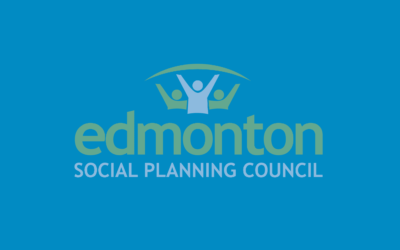Published in Edmonton Journal
In November 2001 a report from a Government MLA Low-Income Review Committee recommended changes that – had they been fully implemented – could have significantly improved the lives of Albertans who rely on the Assured Income for the Severely Handicapped (AISH) and social assistance (Alberta Works) programs.
It took until May 2002 for the provincial government to release the committee’s report. The government responded to the key recommendations calling for enhanced financial support by saying they would be implemented “as budget allows.” Despite running multi-Billion budget surpluses, only limited changes have been made. These include allowing some parents leaving social assistance to retain health benefits and providing supplementary benefits to those leaving abusive relationships.
During the fall 2004 provincial election campaign, the Premier created a political firestorm with some ill-considered comments about AISH recipients. In the political damage control that followed, the Conservatives promised to take another look at the AISH program if re-elected.
As part of a government re-organization after the election, the AISH program was moved into a new Ministry of Seniors and Community Supports. The Alberta Works program remained in the Ministry of Human Resources and Employment.
Since then, these income support programs have gone in sharply different directions. Significant enhancements have been made for AISH recipients. However, very little has changed for those on Alberta Works.
In January 2005, Seniors and Community Supports Minister Yvonne Fritz appointed a second Government MLA committee to consult and make recommendations for improving the AISH program. While many government committees work at a glacial pace, this one managed to complete its work within three months. As a result, AISH recipients received an 18 per cent increase in their monthly benefit levels to $1,000 per month consisting of a $100 increase effective April 1, 2005 and a further $50 increase on April 1, 2006.
By contrast, there was no follow-up committee appointed by the Minister of Human Resources and Employment. Alberta Works recipients did receive an average 5 per cent increase in their monthly benefit level on May 1, 2006, but only for recipients not expected to work. Over one-half of recipients expected to work received no increase. Rates remain at the same low level where they have languished since 1993, despite huge increases in housing costs and significant erosion of the real value of benefits due to inflation. A single person considered employable receives $402 per month, far below what is needed to meet basic needs in today’s booming economy.
Effective October 2005, AISH recipients also get to keep more of what they earn through employment without suffering a corresponding claw back of their benefits. The amount they could earn per month that was fully exempt doubled to $400. Thereafter the claw back was reduced to 50 per cent to a maximum monthly employment income of $1,000 for singles and $2,000 for couples.
Again by way of contrast, earnings exemptions for Alberta Works recipients remain at the same low level of $115 monthly for singles. While an adjustment to $230 monthly for single parents and couples was made in late 2001, this is still well below the AISH earnings exemption. The Alberta Works’ claw back on earnings above this level remains at 75 per cent.
The average Albertan would not be highly motivated to work harder if they were taxed at a rate of 75 cents of every additional dollar earned. Yet that’s the unfortunate situation of 27,000 Albertans receiving Alberta Works benefits.
If we truly want Albertans on low and limited incomes to work and better themselves, why do we penalize them for doing so? If high marginal tax rates are seen as a disincentive to work harder for high-income earners, why are they not seen the same way for those with low incomes?
A recent study published by the Institute for Research on Public Policy finds that this policy keeps people trapped in poverty (IRPP Choices, June 2003, p.40). The poverty trap occurs when low-income earners cannot improve their income by increasing their work hours or wages, because any earnings increases are off-set by withdrawal of income support payments, child tax benefits, health care premium subsidies, and other benefits. The withdrawal of benefits sometimes exceeds increases in earnings resulting in an effective marginal tax rate of over 100 per cent.
A number of straightforward changes could be made to provincial low-income support programs at minimal cost to the public purse. These modest needed changes include:
- Increasing earnings exemptions for the Alberta Works program to the same level as those in the AISH program. The annual cost of doubling earnings exemptions for AISH recipients was a modest $4.8 million.
- Tying monthly allowances to costs of basic necessities like food, shelter and clothing. MLA salaries and benefits are tied to changes in living costs. So should income support programs for Albertans struggling to make ends meet.
Longer-term both AISH and Alberta Works rates should be brought up to the poverty line. Several years ago, the federal and provincial governments developed a ‘Market Basket Measure’ (MBM) to establish a poverty line reflecting actual living costs for food, clothing, shelter and other essentials. Now most governments – including the Alberta government – are refusing to follow through by basing their income support programs on the MBM they themselves developed.
Alberta’s strong economy and robust job market has led to a two-thirds reduction in the number of Albertans receiving Alberta Works benefits over the past twelve years. Most people receiving benefits can’t work due to illness or other factors. It’s time they received an income allowing them to pay for necessities and live with some measure of dignity.
John Kolkman is the Research and Policy Analysis Coordinator for the Edmonton Social Planning Council .
website: www.edmontonsocialplanning.ca


